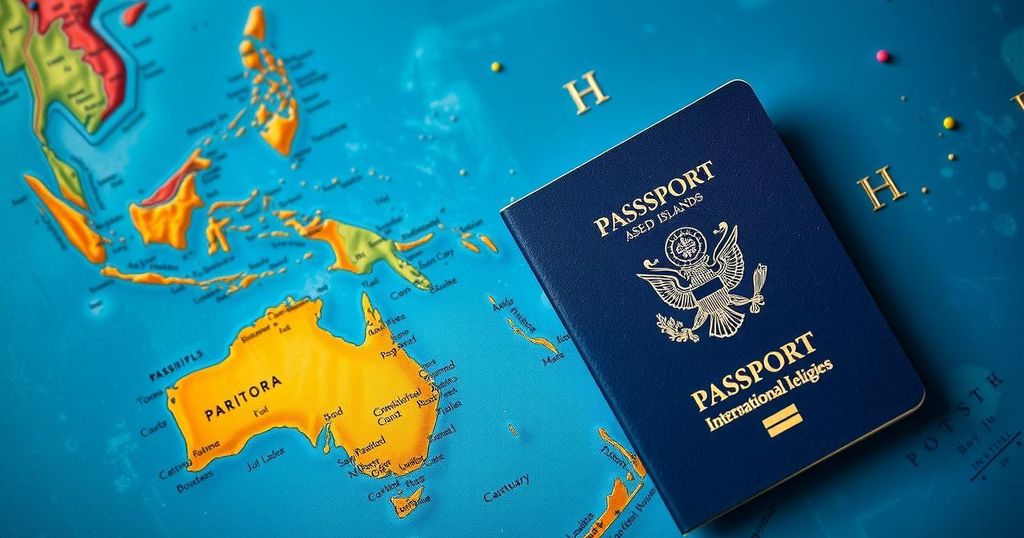Lessons for Solomon Islands and Nauru from Vanuatu’s EU Visa Revocation
Vanuatu has lost its visa-free access to the EU due to lax regulations in its citizenship by investment program, serving as a cautionary tale for Solomon Islands and Nauru, which are considering similar schemes that could also risk international trust and security.
Recently, Vanuatu faced significant sanctions from the European Parliament, which marked the first occasion a nation lost its visa-free access to the EU’s Schengen area. The rapporteur Paulo Cunha expressed that the decision was not made lightly, describing it as a necessary measure due to Vanuatu’s insufficient cooperation concerning its citizenship by investment (CBI) program, which raised substantial security concerns. Despite the allure of this program which promises minimal requirements and expedited processing, unregulated issuance of citizenship posed serious threats to European borders.
Vanuatu’s CBI program has reportedly marketed itself as one of the fastest and simplest options available, costing around US$150,000. However, this has raised alarms about the adequacy of applicant evaluations, leading to allegations of abuse of EU trust. Within the region, other nations such as the Solomon Islands and Nauru are considering similar CBI schemes, undoubtedly viewing the visa-free travel to Europe as a strong selling point. The Solomon Islands is currently drafting a CBI bill, while Nauru, in light of climate finance needs, has opted to embark on its own CBI journey.
The backdrop to these legislative developments includes the economic difficulties faced by these nations which limit their revenue-generating options. The EU’s partial, later full, suspension of Vanuatu’s visa-free status underscores the severe ramifications of poorly managed CBI schemes, which can harm economic and diplomatic relationships. Much of Vanuatu’s ordeal serves as a cautionary tale for Solomon Islands and Nauru, emphasizing the need for rigorous applicant screening processes and strong governance frameworks to foster trust and ensure effective cooperation with international partners.
The topic of citizenship by investment (CBI) programs has garnered significant attention as nations seek to bolster their economies through foreign investment. Vanuatu’s recent revocation of visa-free access to the EU highlights the potential vulnerabilities of such schemes when regulatory frameworks are inadequate. The implications of Vanuatu’s experience resonate deeply for other countries in the Pacific, particularly Solomon Islands and Nauru, which are currently contemplating similar initiatives to enhance their economic standing and address pressing financial needs.
The experience of Vanuatu serves as a valuable case study for Solomon Islands and Nauru regarding the management and implementation of citizenship by investment programs. While such schemes offer potential benefits in terms of revenue, they also bring substantial risks if not managed properly. As underscored by Vanuatu’s downfall, a robust regulatory framework, thorough background checks, and effective communication with international authorities are critical for ensuring that citizenship does not become a commodity that undermines national integrity and international trust.
Original Source: www.rnz.co.nz




Post Comment